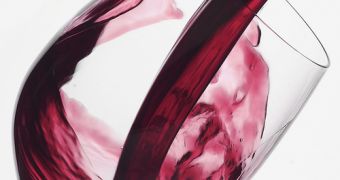Red wine has long been hailed as a miracle cure for depression and heart disease, with anti-inflammatory, invigorating and life-prolonging properties - not to mention great versatile taste. Part of this reputation was folklore and word of mouth - after all, red wine has been around for millennia - while part of it is scientifically proven. A recent study conducted at the University of Wisconsin-Madison in the US and published this week has taken a closer look at red grapes, and discovered that a compound found in the skin of the fable fruits named resveratrol may curb the effects of aging, even when taken in small doses.
Resveratrol was previously known for its anti-cancer and anti-inflammatory properties, but further tests conducted on mice showed that this substance has the same effect as calorie restrictions in keeping the heart healthy and keeping old age at bay preventing those genetic changes that lead to aging. In other words, resveratrol consumption has the same effects on our bodies as going on a heart-friendly diet. "Resveratrol is active in much lower doses than previously thought and mimics a significant fraction of the profile of calorific restriction at the gene expression level", explains Professor Tomas Prolla, senior author of the research in question.
As we age, gene activity in various areas of our bodies modifies as genes switch on and off - resveratrol, however, was found to prevent harmful changes in heart genes, greatly decelerating the dangerous decline in heart function associated with growing older. A glass of red wine, researchers note, marks a "robust intervention in the retardation of cardiac aging". Resveratrol is produced naturally by plants and can be found in great quantities in the skin of red grapes. We can give our body smaller doses of resveratrol by eating such things as blueberries, bilberries, cranberries or peanuts.

 14 DAY TRIAL //
14 DAY TRIAL //